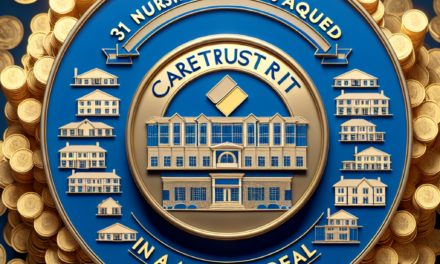Majority of Adults Concerned Medicaid Cuts May Impact Healthcare Access: KFF
The landscape of healthcare in the United States is constantly evolving, and one of the most pressing issues today is the potential impact of Medicaid cuts on healthcare access. According to a recent survey conducted by the Kaiser Family Foundation (KFF), a significant majority of adults express concern that reductions in Medicaid funding could severely affect their access to necessary healthcare services. This article delves into the implications of these cuts, the demographics most affected, and the broader consequences for public health and the economy.
Understanding Medicaid: A Lifeline for Millions
Medicaid is a state and federal program that provides health coverage to low-income individuals and families. Established in 1965, it has become a crucial safety net for millions of Americans, covering a wide range of services, including hospital visits, long-term care, and preventive services. As of 2023, Medicaid serves over 80 million people, making it one of the largest health insurance programs in the country.
Medicaid is particularly vital for vulnerable populations, including:
- Low-income families
- Children
- The elderly
- Individuals with disabilities
- Low-income adults without dependent children in states that expanded Medicaid under the Affordable Care Act (ACA)
Given its extensive reach, any cuts to Medicaid funding could have far-reaching consequences. The KFF survey highlights that a majority of adults are aware of these potential impacts, indicating a growing concern about healthcare access in the face of budgetary constraints.
The Current State of Medicaid Funding
Medicaid funding is primarily derived from federal and state governments, with the federal government matching state spending at varying rates. However, recent political discussions have raised the possibility of cuts to Medicaid funding as part of broader budgetary reforms. These discussions often stem from the need to reduce national debt and address fiscal imbalances.
In 2023, the federal government allocated approximately $600 billion to Medicaid, but this figure is under scrutiny as policymakers debate potential cuts. The implications of these cuts could be dire, particularly for states that have expanded Medicaid under the ACA. For instance:
- States that expanded Medicaid have seen significant reductions in uninsured rates.
- Medicaid expansion has led to improved health outcomes, including better management of chronic diseases.
- Cuts could reverse these gains, leading to increased rates of uninsured individuals.
Moreover, the KFF survey indicates that many adults are concerned about the potential for increased out-of-pocket costs and reduced access to care if cuts are implemented. This concern is particularly pronounced among low-income populations who rely heavily on Medicaid for their healthcare needs.
Demographics Most Affected by Medicaid Cuts
The potential impact of Medicaid cuts is not uniform; certain demographics are more vulnerable than others. Understanding who would be most affected is crucial for policymakers and advocates alike. The KFF survey reveals that specific groups are particularly concerned about the implications of Medicaid cuts:
- Low-Income Families: Families living below the poverty line are heavily reliant on Medicaid for essential healthcare services. Cuts could lead to increased financial strain and reduced access to necessary treatments.
- Children: Medicaid covers millions of children through the Children’s Health Insurance Program (CHIP). Cuts could jeopardize their access to preventive care, vaccinations, and routine check-ups.
- Individuals with Disabilities: Many individuals with disabilities depend on Medicaid for long-term care and support services. Reductions in funding could limit their access to critical resources.
- The Elderly: Older adults often rely on Medicaid for nursing home care and other health services. Cuts could force many into precarious situations regarding their health and well-being.
- Rural Populations: In rural areas, where healthcare resources are already limited, Medicaid cuts could exacerbate existing disparities in access to care.
For example, a study conducted in Texas found that Medicaid cuts led to a significant increase in hospital readmissions among low-income patients, highlighting the direct correlation between funding and health outcomes. The KFF survey underscores that adults from these demographics are particularly worried about the potential loss of coverage and the subsequent impact on their health.
Consequences of Medicaid Cuts on Public Health
The ramifications of Medicaid cuts extend beyond individual health; they pose a significant threat to public health as a whole. The KFF survey indicates that a majority of adults believe that cuts could lead to increased rates of chronic diseases, mental health issues, and overall poorer health outcomes in the community.
Some of the potential public health consequences include:
- Increased Uninsured Rates: Cuts to Medicaid could lead to millions losing their coverage, resulting in a spike in uninsured rates. This could hinder access to preventive care and early intervention services.
- Higher Emergency Room Utilization: Without access to regular healthcare, individuals may resort to emergency rooms for treatment, leading to overcrowding and increased healthcare costs.
- Worsening Health Disparities: Vulnerable populations, including racial and ethnic minorities, may experience worsening health disparities as access to care diminishes.
- Increased Burden on Public Health Systems: Public health systems may face increased strain as they attempt to manage the fallout from cuts, diverting resources from other critical areas.
- Long-Term Economic Consequences: Poor health outcomes can lead to decreased productivity and increased healthcare costs, ultimately impacting the economy.
For instance, a report from the Urban Institute found that states that implemented Medicaid cuts saw a rise in preventable hospitalizations, indicating that reduced access to primary care leads to more severe health issues. The KFF survey reflects a growing awareness among adults that these cuts could have dire consequences for public health, emphasizing the need for a comprehensive approach to healthcare funding.
Advocacy and Policy Responses to Medicaid Cuts
In light of the potential for Medicaid cuts, advocacy groups and policymakers are mobilizing to protect this essential program. The KFF survey indicates that a significant portion of the adult population supports maintaining or expanding Medicaid funding, recognizing its critical role in ensuring healthcare access for vulnerable populations.
Key advocacy strategies include:
- Public Awareness Campaigns: Organizations are working to raise awareness about the importance of Medicaid and the potential consequences of cuts. These campaigns aim to educate the public and mobilize grassroots support.
- Legislative Advocacy: Advocacy groups are lobbying lawmakers to protect Medicaid funding and explore options for expansion rather than cuts. This includes engaging with state legislators and providing data-driven arguments for maintaining funding levels.
- Coalition Building: Various stakeholders, including healthcare providers, patient advocacy groups, and community organizations, are forming coalitions to amplify their voices and present a united front against cuts.
- Research and Data Analysis: Organizations like KFF are conducting research to provide evidence of the positive impacts of Medicaid on health outcomes, which can be used to inform policy discussions.
- Legal Challenges: In some cases, advocacy groups are exploring legal avenues to challenge proposed cuts, arguing that they violate the rights of individuals who depend on Medicaid for their healthcare needs.
For example, in California, a coalition of healthcare providers and patient advocates successfully lobbied against proposed cuts to Medi-Cal (California’s Medicaid program), highlighting the potential negative impacts on health outcomes. The KFF survey indicates that public support for Medicaid is strong, providing a solid foundation for advocacy efforts aimed at preserving and expanding access to healthcare.
Conclusion: The Path Forward for Medicaid and Healthcare Access
The KFF survey underscores a critical reality: a significant majority of adults are concerned about the potential impact of Medicaid cuts on healthcare access. As discussions around budgetary reforms continue, it is essential to recognize the vital role that Medicaid plays in the lives of millions of Americans. The potential consequences of cuts extend beyond individual health, threatening public health and economic stability.
As we move forward, it is crucial for advocates, policymakers, and the public to engage in meaningful dialogue about the future of Medicaid. Protecting and expanding access to this essential program is not just a matter of healthcare policy; it is a matter of social justice and equity. By prioritizing Medicaid funding, we can ensure that all individuals, regardless of their income or circumstances, have access to the healthcare they need to lead healthy and productive lives.
In summary, the concerns raised by the KFF survey reflect a growing awareness of the importance of Medicaid in the American healthcare system. As we navigate the complexities of healthcare funding, it is imperative to prioritize the needs of vulnerable populations and work collaboratively to safeguard access to essential services. The future of Medicaid—and the health of millions—depends on our collective commitment to ensuring that healthcare is a right, not a privilege.





